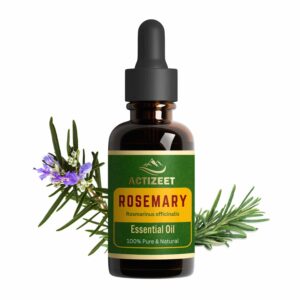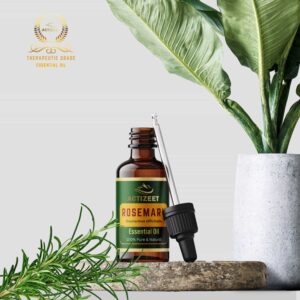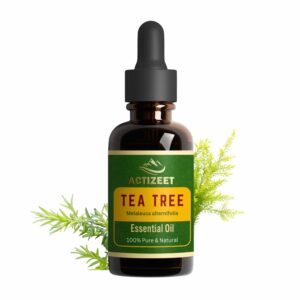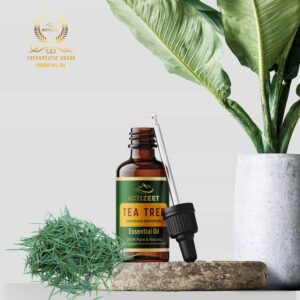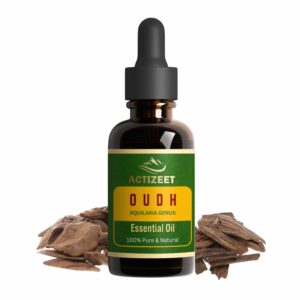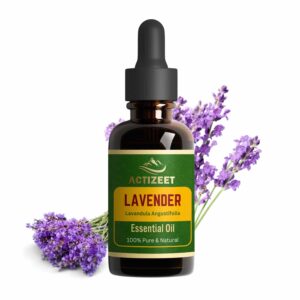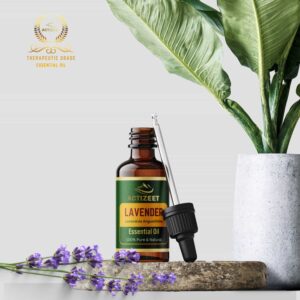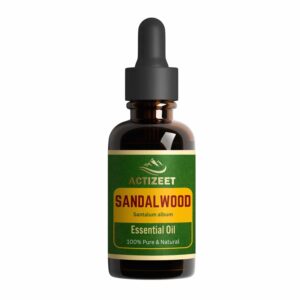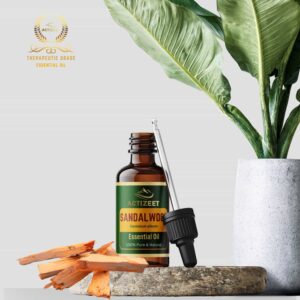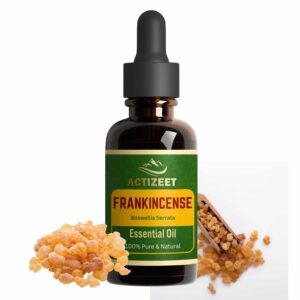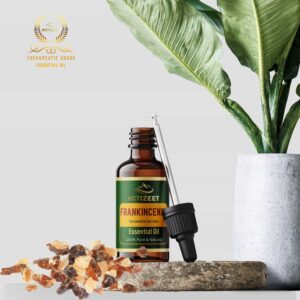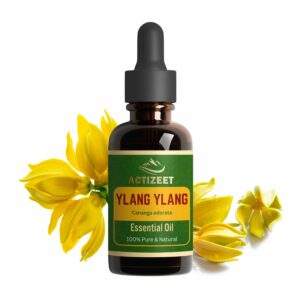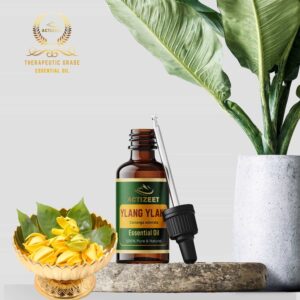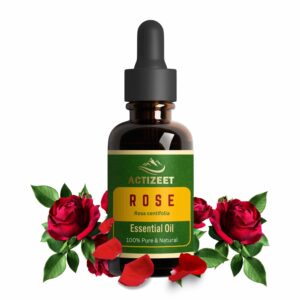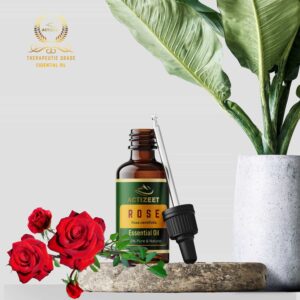Let’s start by understanding exactly what essential oils are. Essential oils are highly concentrated plant extracts that capture the natural fragrance and beneficial properties of plants.
They are obtained through a process called distillation, where the aromatic compounds are carefully extracted from flowers, leaves, bark, or other parts of the plant. These oils possess a wide range of therapeutic qualities and have been used for centuries in various cultures for their healing and aromatic properties.
Table of Contents
ToggleImportance of Finding a Natural Remedy for Itching Skin
When it comes to itching skin, finding a natural remedy is paramount. Many conventional products available on the market contain synthetic ingredients that can potentially irritate or worsen the condition further.
Moreover, these products often come with a laundry list of side effects. This is where essential oils come to the rescue!
By opting for natural remedies like essential oils, you can provide your skin with gentle and effective relief from itching without subjecting it to harsh chemicals. Essential oils offer numerous benefits beyond their ability to soothe itching skin.
They possess unique healing properties that help address various underlying causes while promoting overall skin health. Additionally, opting for natural remedies aligns with an environmentally conscious approach and reduces your exposure to potentially harmful substances commonly found in conventional skincare products.
By incorporating essential oils into your skincare routine, you not only treat itching but also embrace a holistic approach towards total wellness. Now that we have established what essential oils are and why they matter, let’s delve into how they can specifically help alleviate itching skin woes.
The Itch Factor: Understanding Itching Skin
Causes of itching skin (dryness, allergies, insect bites)
Ah, the dreaded itch. We’ve all experienced that maddening sensation that keeps us up at night and has us scratching like there’s no tomorrow.
But what exactly causes itching skin? Well, it can be attributed to various factors, the most common of which are dryness, allergies, and insect bites.
Dryness is a prime suspect when it comes to itchiness. When your skin lacks moisture, it becomes prone to irritation and itchiness.
Harsh weather conditions such as cold winter air or excessive heat can zap the natural oils from your skin, leaving it parched and vulnerable. Allergies are another notorious culprit behind itching skin.
Whether it’s an allergic reaction to certain foods, pollen in the air, or even specific fabrics touching your skin – allergies can trigger an onslaught of itchiness. Your body sees these allergens as intruders and releases histamines to fight them off.
Unfortunately for us, histamines also happen to provoke that insufferable itch. Insect bites are like tiny villains with superpowers – they can drive you absolutely bonkers!
When mosquitoes or other critters sink their little fangs into your flesh for a blood feast (how rude!), they inject saliva that contains proteins your body reacts to by releasing histamines (there they go again!). These histamines cause redness and swelling but also unleash the infernal urge to scratch until you’re raw.
Common symptoms associated with itching skin
Itchy skin is not just an annoyance; it often comes accompanied by a range of pesky symptoms that make life even more unbearable for those unlucky enough to experience them. One prevalent symptom is dryness – when your skin feels rough or flaky due to insufficient moisture levels.
Dry skin can exacerbate the itchiness, creating a vicious cycle that seems impossible to break. Redness and inflammation are also common symptoms that go hand in hand with itching skin.
When your skin becomes irritated, blood vessels dilate, causing the area to appear red and inflamed. It’s like a neon sign saying, “Scratch me!”
Bumps or hives may also join the itchy party. These raised welts on your skin can be caused by an allergic reaction or as a result of scratching too fiercely.
They serve as a constant reminder of your battle with the itch monster. Let’s not forget about the oh-so-delightful stinging or burning sensations that often accompany itching skin.
It’s like getting zapped by tiny, invisible fireflies who take pleasure in tormenting you. So there you have it – dryness, allergies, and insect bites team up with symptoms including dryness, redness, bumps or hives, and stinging or burning sensations to create the ultimate nightmare known as itching skin.
But fear not! Relief is on its way in the form of essential oils.
The Benefits of Using Essential Oils for Itching Skin
Natural and Chemical-Free Solution
When it comes to finding a solution for itching skin, many people prefer natural remedies over products loaded with chemicals. Essential oils offer a wonderful alternative as they are derived from plants, and their therapeutic properties have been treasured for centuries. Unlike synthetic products that may contain harsh additives, essential oils are pure extracts that retain the natural goodness of the plants they are derived from.
This makes them a gentle and safe option for alleviating itching skin without exposing it to potentially harmful substances. In addition to being chemical-free, essential oils also possess various healing qualities that can address the underlying causes of itchiness.
They provide relief by targeting dryness, allergies, or insect bites, which are common culprits behind irritated skin. The use of these oils as a natural remedy not only reduces the risk of adverse reactions but also promotes overall well-being by avoiding unnecessary exposure to synthetic ingredients found in conventional skincare products.
Soothing Properties That Calm Irritated Skin
One of the remarkable benefits offered by essential oils is their ability to soothe and calm irritated skin effectively. These precious botanical extracts contain compounds with anti-inflammatory and analgesic properties, making them ideal for alleviating itchiness and discomfort. When applied topically, essential oils can provide immediate relief due to their cooling and soothing effects on the skin.
For instance, lavender oil is renowned for its calming aroma, which helps relax both the mind and body. When used on itchy skin, lavender oil’s gentle nature can reduce inflammation while providing instant relief from irritation.
Similarly, chamomile oil has been widely recognized for its soothing properties, making it an excellent choice for addressing various skin conditions, including itching. By incorporating such essential oils into your skincare routine, you can harness their inherent calming abilities to soothe your irritated skin naturally.
Potential Anti-Inflammatory Effects to Reduce Itching
Inflammation is a common factor that exacerbates itching and discomfort. Essential oils, however, possess potential anti-inflammatory effects that can help reduce itching by addressing the root cause. Many essential oils contain compounds with anti-inflammatory properties, such as linalool, limonene, and alpha-pinene.
These compounds have been studied for their ability to inhibit inflammatory response pathways in the body. Tea tree oil is a prime example of an essential oil renowned for its anti-inflammatory effects.
Its active component, terpinene-4-ol, has been shown to suppress inflammation and ease itching when applied topically. Similarly, eucalyptus oil contains cineole—a compound known for its anti-inflammatory properties—which can help reduce redness and swelling associated with itching skin.
By utilizing essential oils with potential anti-inflammatory effects, individuals suffering from itchy skin can attain relief by targeting inflammation at its source. Incorporating these oils into your skincare routine may help alleviate discomfort and promote healthier skin overall.
Top Essential Oils for Itching Skin
Lavender oil: Promotes relaxation and soothes itchy skin
When it comes to finding relief for itching skin, lavender oil is a popular choice due to its calming properties. Lavender oil contains compounds such as linalool and linalyl acetate that possess anti-inflammatory and analgesic effects. These properties help reduce itching sensations and provide soothing relief to irritated skin. How lavender oil works on the skin:
Lavender oil has a multifaceted approach when it comes to alleviating itchiness. Firstly, its anti-inflammatory properties help reduce the redness and swelling associated with irritated skin, providing instant comfort.
Secondly, the scent of lavender has a relaxing effect on the nervous system, which can indirectly alleviate itching caused by stress or anxiety. Additionally, lavender oil promotes better blood circulation, helping the skin rejuvenate faster and aiding in the healing process. Recommended application methods:
To use lavender oil for itching skin, you can mix a few drops with a carrier oil like coconut or jojoba oil for dilution purposes. Gently massage this mixture onto the affected area until it is absorbed into the skin. Another option is adding a few drops of lavender essential oil to your bathwater; this allows for overall relaxation while targeting specific areas of irritation in your body.
Tea tree oil: Known for its antibacterial properties
Tea tree oil is renowned for its powerful antibacterial properties and has long been used as an effective remedy for various dermatological issues. When it comes to itching skin caused by insect bites or allergic reactions, tea tree oil can provide much-needed relief. How tea tree oil helps alleviate itching:
Tea tree essential oil contains terpinen-4-ol, which possesses antimicrobial and anti-inflammatory properties that can help soothe itching skin. It acts as a natural antiseptic, preventing bacterial growth and reducing the risk of infection in open wounds caused by scratching. Furthermore, tea tree oil’s anti-inflammatory effects can help calm down the skin’s immune response, thereby minimizing itching sensations. Safety precautions when using tea tree oil:
While tea tree oil is generally safe for topical use on the skin, it is crucial to remember that it should always be diluted before application. Undiluted tea tree oil may cause skin irritation or allergic reactions in some individuals.
It is recommended to mix a few drops of tea tree essential oil with a carrier oil before applying it to the affected area. Additionally, if you have sensitive skin or any known allergies, perform a patch test on a small area of your skin before using tea tree oil more extensively.
Peppermint oil: Cooling sensation to relieve itchiness
Known for its refreshing and invigorating aroma, peppermint essential oil provides much-needed relief from itchiness due to its cooling properties. How peppermint oil provides relief from itching:
Peppermint essential oil contains menthol, which gives it a cooling sensation when applied topically. This cooling effect helps to numb the nerve endings responsible for transmitting itching sensations to the brain.
By interrupting this communication pathway, peppermint oil effectively alleviates itchiness and provides immediate relief. Additionally, menthol has mild anaesthetic properties that can temporarily reduce pain associated with excessive scratching. Application techniques and dilution guidelines:
To use peppermint essential oil for itching skin, you can dilute a few drops of the oil with a carrier substance like almond or olive oil. Gently massage this mixture onto the affected area until it is absorbed by the skin.
As peppermint essential oil is potent due to its menthol content, it is important not to apply an undiluted form directly to the skin, as it could cause a cooling sensation that’s too intense or even skin irritation. Diluting it adequately ensures a safe and pleasant experience while effectively relieving itchiness.
Eucalyptus Oil: Nature’s Soothing Analgesic
While lavender, tea tree, and peppermint oils are commonly known for their benefits in alleviating itching skin, eucalyptus oil is a hidden gem that deserves recognition. Derived from the leaves of the eucalyptus tree, this essential oil contains natural analgesic properties that help soothe itchiness.
The cooling and refreshing qualities of eucalyptus oil make it a popular choice for relieving skin irritations. When applied topically, it acts as a natural pain reliever by numbing the area and providing instant relief from itching.
The oil also has anti-inflammatory properties that further aid in reducing the redness and swelling associated with itchiness. Using eucalyptus oil to alleviate itching is quite simple.
First, dilute a few drops of eucalyptus oil with a carrier oil such as coconut or jojoba oil to avoid any potential skin irritation. Gently massage the diluted mixture onto the affected area until fully absorbed.
For best results, repeat this process two to three times daily until the itching subsides. It’s worth noting that while eucalyptus oil can be highly effective in soothing itching skin, caution should be exercised when using it.
Some individuals may have allergies or sensitivities to the components present in eucalyptus oil. Therefore, it is recommended to perform a patch test on a small area of skin before applying it more extensively.
Geranium Oil: Calming Irritated Skin Naturally
In the realm of essential oils for soothing itching skin lies geranium oil—a lesser-known but potent remedy with remarkable anti-inflammatory benefits. Extracted from the leaves and flowers of geranium plants, this floral-scented essential oil has been used for centuries due to its versatile healing properties.
Geranium oil is particularly effective in reducing itchiness caused by skin inflammation. Its soothing and calming effects help alleviate irritation and promote healthy skin regeneration.
By inhibiting the production of certain inflammatory substances, geranium oil not only relieves itching but also contributes to the overall improvement of skin health. There are several ways to incorporate geranium oil into your skincare routine for maximum benefits.
One popular method is to add a few drops of geranium oil to your favourite carrier oil, such as almond or grapeseed oil, and massage it onto the affected area. Alternatively, you can mix a few drops of geranium oil with an unscented lotion or cream and apply it all over your body after showering.
This fragrant essential oil can also be added to a warm bath for a luxurious and soothing experience. Simply combine a few drops of geranium oil with Epsom salts or bath gel before immersing yourself in the comforting water.
The gentle aroma will uplift your spirits while the anti-inflammatory properties work their magic on your irritated skin. Exploring beyond commonly known essential oils can lead us to discover hidden wonders like eucalyptus and geranium oils.
These natural remedies possess unique properties that effectively soothe itching skin caused by various irritations. By incorporating these lesser-known gems into our skincare routines, we can unlock nature’s potential for providing relief and promoting healthier skin.
Tips for Using Essential Oils for Itching Skin
Proper Dilution:
When using essential oils for itching skin, it is crucial to dilute them properly to avoid any adverse reactions. Essential oils are highly concentrated and can be potent if used undiluted. A general rule of thumb is to mix 2-4 drops of essential oil with 1 tablespoon of carrier oil, such as coconut oil or sweet almond oil. This helps ensure that the essential oil is safely diluted and reduces the risk of skin irritation.
Patch Test:
Before applying an essential oil blend to a larger area, always perform a patch test on a small area of your skin first. Apply a diluted solution of the essential oil mixture to an inconspicuous spot, like your inner forearm, and observe for any adverse reactions within 24 hours. If you experience redness, itching, or any discomfort, it’s best to avoid using that particular essential oil on your skin.
Mindful Application:
When applying the diluted essential oil blend to your itching skin, use gentle circular motions to massage it into the affected area. Be mindful not to scratch or irritate the already itchy skin further as this could exacerbate the condition. Allow the oils to absorb into your skin rather than rinsing them off immediately.
Conclusion
Incorporating essential oils into your skincare routine can be a natural and effective way to alleviate itching skin caused by various factors such as dryness, allergies, or insect bites. Lavender oil offers its soothing properties and promotes relaxation while tea tree oil’s antibacterial effects help calm irritated skin.
The cooling sensation provided by peppermint oil brings relief from itchiness. Remember always to dilute these potent oils properly before application and perform patch tests beforehand to ensure no adverse reactions occur.
By incorporating these tips into your essential oil regime, you can find relief from itching skin and enjoy a more soothing and comfortable experience. Embrace the power of nature’s remedies, and let essential oils be your allies in achieving healthier, itch-free skin.
RECOMANDED PRODUCTS
-
Rated 4.72 out of 5
₹1,500.00Original price was: ₹1,500.00.₹1,200.00Current price is: ₹1,200.00. Incl. GST ADD TO CART Buy Now -
Rated 4.88 out of 5
₹1,500.00Original price was: ₹1,500.00.₹1,200.00Current price is: ₹1,200.00. Incl. GST ADD TO CART Buy Now -
Rated 4.63 out of 5
₹1,900.00Original price was: ₹1,900.00.₹1,450.00Current price is: ₹1,450.00. Incl. GST ADD TO CART Buy Now -
Rated 4.74 out of 5
₹1,500.00Original price was: ₹1,500.00.₹1,200.00Current price is: ₹1,200.00. Incl. GST ADD TO CART Buy Now -
Rated 4.72 out of 5
₹2,500.00Original price was: ₹2,500.00.₹1,950.00Current price is: ₹1,950.00. Incl. GST ADD TO CART Buy Now -
Rated 4.88 out of 5
₹1,500.00Original price was: ₹1,500.00.₹1,200.00Current price is: ₹1,200.00. Incl. GST ADD TO CART Buy Now -
Rated 4.80 out of 5
₹1,500.00Original price was: ₹1,500.00.₹1,200.00Current price is: ₹1,200.00. Incl. GST ADD TO CART Buy Now -
Rated 4.88 out of 5
₹1,500.00Original price was: ₹1,500.00.₹1,200.00Current price is: ₹1,200.00. Incl. GST ADD TO CART Buy Now
Related posts:
- Discover Best Essential Oil for Dry Skin: Expert Insights
- Revitalize Your Skin with Essential Oil: The Ultimate Guide
- Discover the Best Essential Oil for Glowing Skin: Expert Insights
- Relieve Joint Pain Naturally: Essential Oil Remedy
- The Miraculous Benefits of Camphor Essential Oil: A Comprehensive Guide to Relieving Pain, Boosting Mental Health and Enhancing Skin Care
- The Ultimate Guide: Best Essential Oil for Face
- Champaka Essential Oil: A Comprehensive Guide to its Skin, Hair, and Spiritual Benefits
- Essential Oil on Skin: Safe or Risky?


